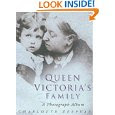It was an amber afternoon; the leaves were waving from the apple tree like a washing line of green socks above the chatter of children gulping blackberries on the grass.
“Guess what I did!” I dumped my bike and flew across the lawn with my arms outstretched in triumph.
“We know what you did,” Jessica flicked her curls with dainty fingers. “You dug a hole round the shed and you’re not allowed to play out.”
James, sprawling beside her, began to smile.
“A moat!” I said, “It was a moat, not a hole.”
“A moat without water? A moat around a shed!”
James’ brown eyes met Jessica’s and they sparkled. I stepped between them and stared into his face.
“I went into a Maximum Red Alert Zone on my own.”
He didn’t look at me. He reached to trap a butterfly floating to the purple-pink buddleia.
“I went into the haunted lodge.”
Alan grunted and Peter raised his head.
“I saw the devil!”
Peter’s eyes were wide with interest now.
“I’ve brought the candlestick to prove it.”
He stared, “You got the candlestick?”
“Look,” I lifted my T-shirt and pulled out the trophy, “and when I got it the devil saw me and chased me out of the house.”
Alan drilled his finger into a worn patch on the apple tree and prised off a piece of bark, “Liar!”
“Look!” I waved the candlestick in his face.
“That’s a different candlestick. The one in the lodge was gold. That’s just brass.”
I tugged my brother’s arm, “Tell him, Peter. It’s true!”
Peter took the candlestick from me and turned it around in his hand, “Yes, this is the one we saw through the window.”
“Can I have a medal?”
The sunlight shone on James’ jet-black hair and, shielding his eyes with his hand, he looked up at me, “Did you really do it?”
“Cross my heart.”
My ribs throbbed in anticipation of glory and the feel of his fingers as they placed the medal around my neck.
“Okay, you can have a medal but you’ll have to wait. I’ve not brought any with me today.”
Jessica looked at him and flicked her curls, as I flicked a greenfly from my leg, pretending not to care. He shuffled closer to her and his fingers crawled towards her like an insect through the grass. I looked away and wondered why he loved her.
He had loved her all my life. He loved her before I was born. He loved her since the day he and his brother, Alan, moved into the big house next door to my Great Auntie Lucy’s. And she told me he would love her until the day he died.
The sand inside my shorts prickled my bottom. I fidgeted with the elastic and waited for something to happen.
Suddenly James stood up, “Let’s play Crusades. I’ll be Richard the Lionheart.”
We ran to the shed for swords and arrows while Jessica leaned against the apple tree waiting for James to tie her hands, “I’ll be the hostage. You’ll have to rescue me.”
He couldn’t help but love her; she was so pretty and so dainty with red ribbons in her hair. In spring she made perfumes from pink blossom in a jam jar and their scent filled our bedroom. She dabbed it on her wrists and, carrying her little parasol, walked among the primroses humming songs she’d learned in school.
Peter threw out a pile of brown sacking from the underside of an old bed and we donned it as knightly tunics before scrambling in a box for shields and weapons. Jessica didn’t need a sword or costume; she already had the ribbons of a lady.
“Can I be a king?” I said, but James commissioned me as Captain of his bowmen.
“Follow me and I’ll tell you when to shoot.”
I pulled back the string of my bow and sent an arrow flying into the hawthorn, “For England and Saint George!”
“Help! Help!” cried the hostage in Hollywood tones.
I ran towards her; this time she wasn’t going to fall into his arms and burst into tears when the Lionheart saved her.
“Go away!” she huffed as I started to untie the rope.
The Saracens seized our castle and every man was needed to sustain our defence. I abandoned the hostage and fired my last arrow into the rhododendron bush before decapitating a few flowers with my sword.
“Come on,” the Lionheart cried, “let’s storm their drawbridge!”
“I’ll get my arrows,” I said and felt the wound of his angry glance.
“I said I’d tell you when to shoot.”
We pierced the air around Alan who stood motionless by the shed.
“Do something! There are enemies in the moat.”
“Shut up!” he flicked a woodlouse at me.
“Save me! Save me!” the hostage wailed.
King Richard abandoned his command and galloped towards her. I watched him go and, waving my sword, plunged the heathen horde into the moat.
The gate opened and the sudden intrusion of an Infidel wrecked the whole enchanted world. There were no more castles and knights, only children on the grass.
Peter ripped off his tunic and threw his sword behind the hedge.
“Hi, Uncle Max,” he walked across the garden, pretending he was too old to play, “are you looking for Dad?”
“No,” Uncle Max stuffed his hand into an inside pocket, “I’m looking for Georgie.”
“Me?”
“I found something of yours.” He crouched to my height and a gold tooth flashed from his smile, “I found it in our garden while I was cutting the grass.”
“She’s so hopeless,” Jessica said, slipping her hands from the rope, “she leaves her things all over the place.”
Jessica took care of her belongings; she was so neat and tidy that she drew an imaginary line across the middle of our bedroom to separate her neatness from my mess.
“You’re lucky it didn’t go in the motor mower.” Uncle Max said.
My heart sank when he pulled out my secret notebook. I hoped he hadn’t read it:
“POEMS AND SONGS BY GEORGINA MEADOWS”
“I’m fond of poetry;” he said, wiping his hand over his bald head, “we learned them all by heart when I was at school, ‘Half a league, half a league, half a league and on…’” He smiled to himself then at me, “You want to keep it up! A bit hard to read your writing in places, but the bits I could make out were smashing.”
“She’s always in trouble at school for her untidy writing,” Jessica said, “she doesn’t take enough care over it.”
“There you go then,” Uncle Max handed me the book, “I’ll call in and see your mother. I’ve brought her some eggs.”
I lifted my tunic and stuffed the book into the elastic of my shorts.
“What’s in it?” Alan said.
“Nothing.”
“He said poems.”
“She tries to make up songs,” Jessica laughed, “but they all sound the same.”
At night when we took turns to sing ourselves to sleep, Jessica always chose a song she learned in school.
“You can join in the chorus,” she said.
She sang The Ash Grove slowly, pronouncing every word syllable by syllable to make her turn last longer. When she reached the line ‘streamlets meander’ she pretended to have forgotten what came next so she could sing it again: ‘stre…ee…am…lets mee…aa...ander.”
“If you forget it again, you’ll have to stop.”
“Don’t interrupt,” she snapped. “I’ll have to start from the beginning again.”
There was no chorus and I thought I’d fall asleep before my turn came.
“My song,” I said, “is a very sad song about the war.”
“Not Keep The Home Fires Burning again.”
“It’s a song they used to sing when Auntie Lucy was a little girl during the Wars of the Roses.”
Mum’s Auntie Lucy sang with a Lancashire accent which so impressed me I tried to imitate it,
“Keep the yome fyrres burrning.”
Jessica laughed.
“It’s not funny. It’s sad. There was a lady called Mary Ellen and she was in love with a handsome soldier called…James. He went to war in a place called Roses and was shot with three arrows. Mary Ellen was so sad that she died of a broken heart and as she was dying she sang this song. ‘While yerr ‘arts arrre yurrrning…’”
A snuffle came from Jessica’s bed. She was crying; my singing was beautiful.





















